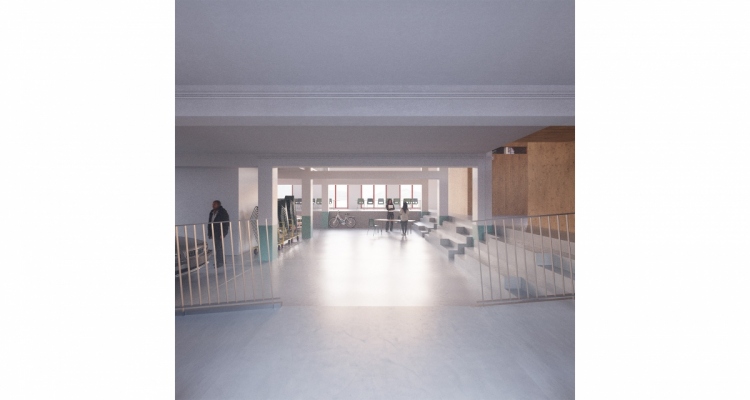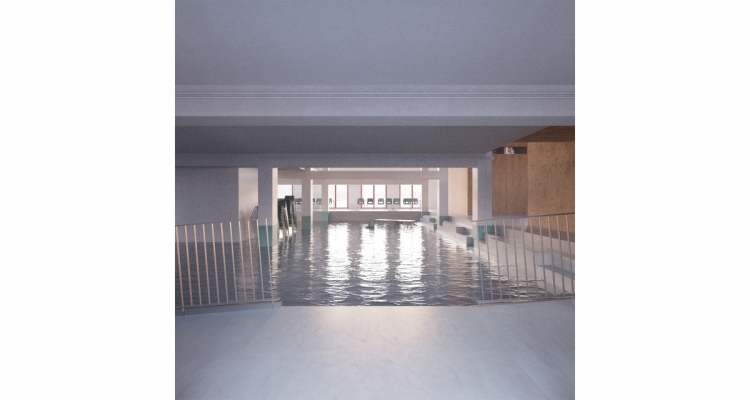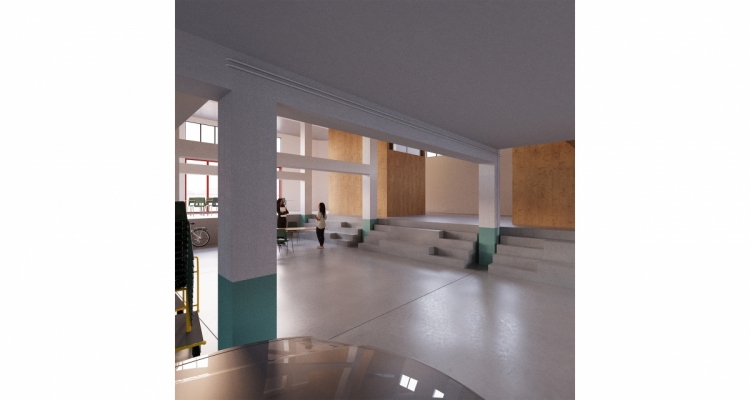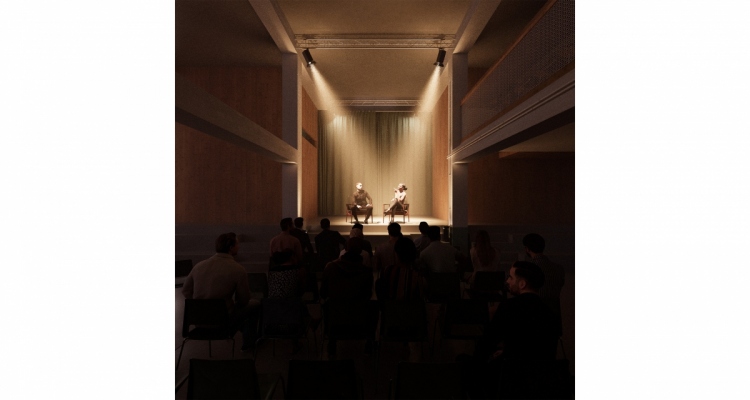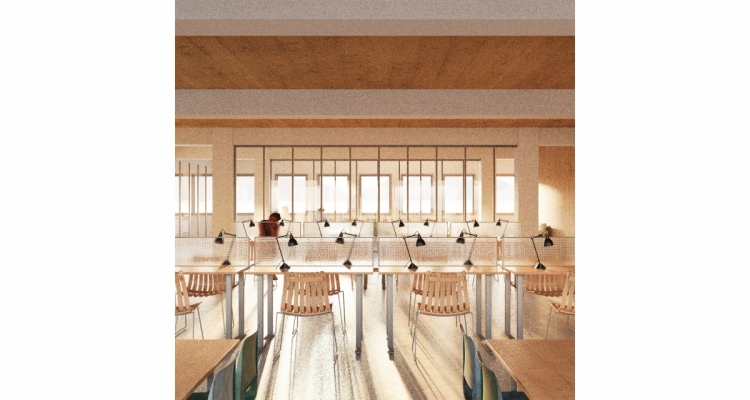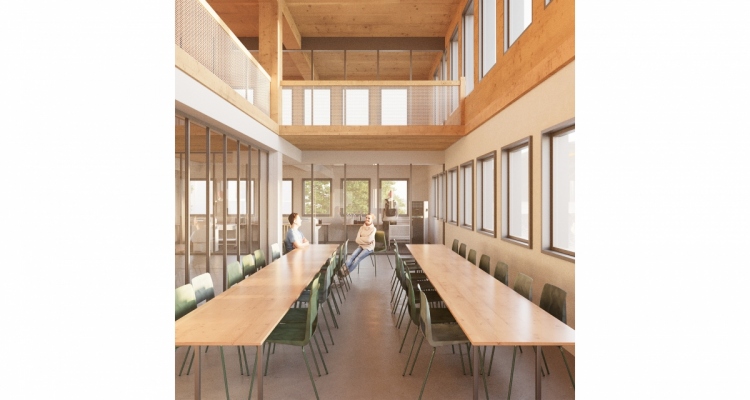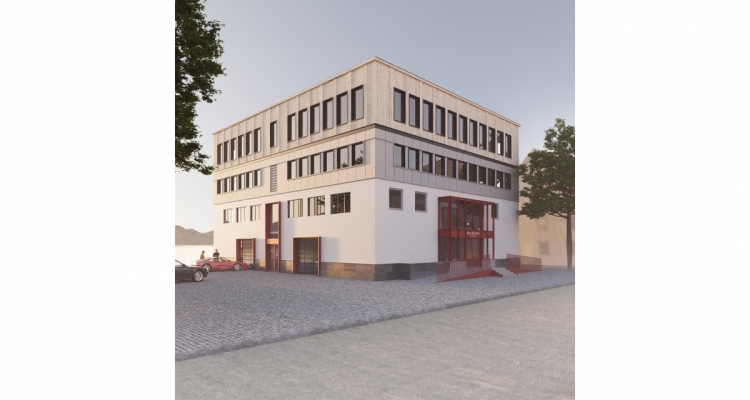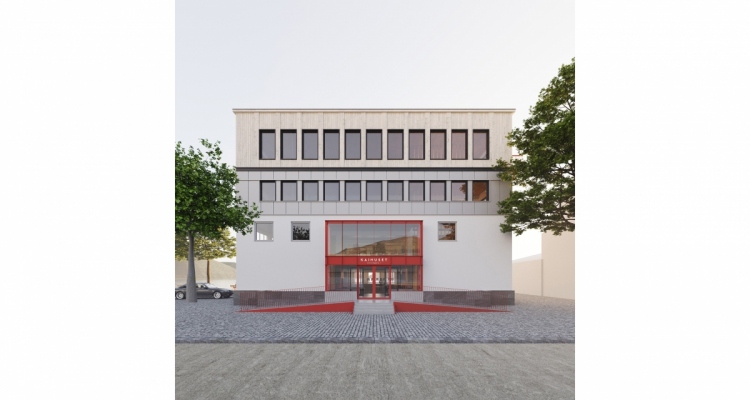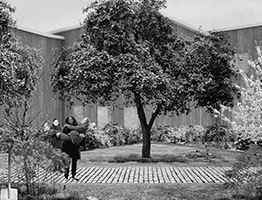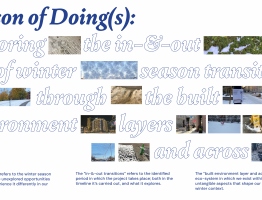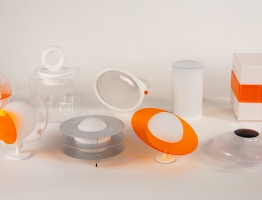Diplomprosjekt
Høst 2023
Institutt for arkitektur
In my diploma, I focus on revitalising Kaihuset, an old concrete building in the small Norwegian town of Ørsta. The project examines the intersection of historical preservation and contemporary urban needs, asking: Can the thoughtful transformation of a single building spark a wider revitalisation in Ørsta’s town centre? Considering the challenges and opportunities in Ørsta, the climate considerations, and the proposed dual function of Kaihuset as a community hub and innovation centre.
Ørsta is a small town in Western Norway with a population of around 10.000. It is characterised by its proximity to nature, with mountains and fjords shaping its landscape. The town’s employment landscape is diverse, spanning from agriculture and fishing to a range of industries and tourism.
The urban dynamic of Ørsta has evolved, particularly after 2006, with the introduction of Alti, a modern shopping centre. This shift has affected the traditional city centre, leading to a decline in activity and an increase in vacant storefronts. Despite the conveniences brought by Alti, this development has posed challenges to the town’s historical and social vibrancy.
Haldeplassen and Ørsta town centre, once a central gathering and marketplace, have experienced a decline in their communal role. Similarly, Kaihuset, a concrete building integral to Ørsta’s history, now faces a transition period with its current tenants, including a cultural school and youth club, planning to relocate. This opens up opportunities for reimagining Kaihuset’s purpose in the community.
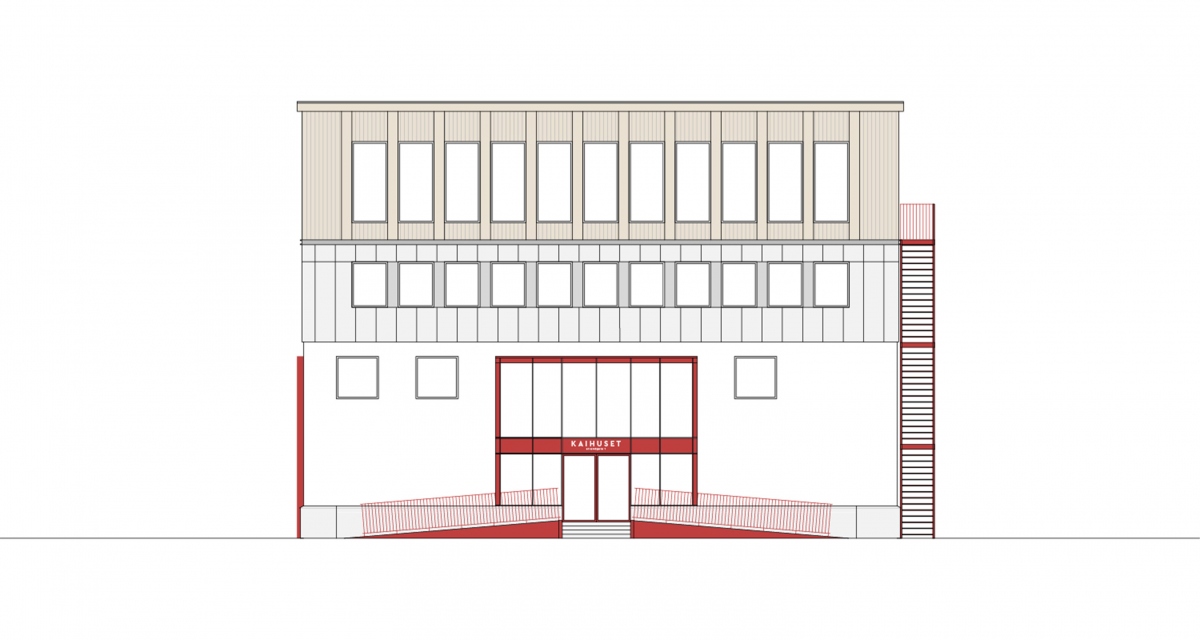
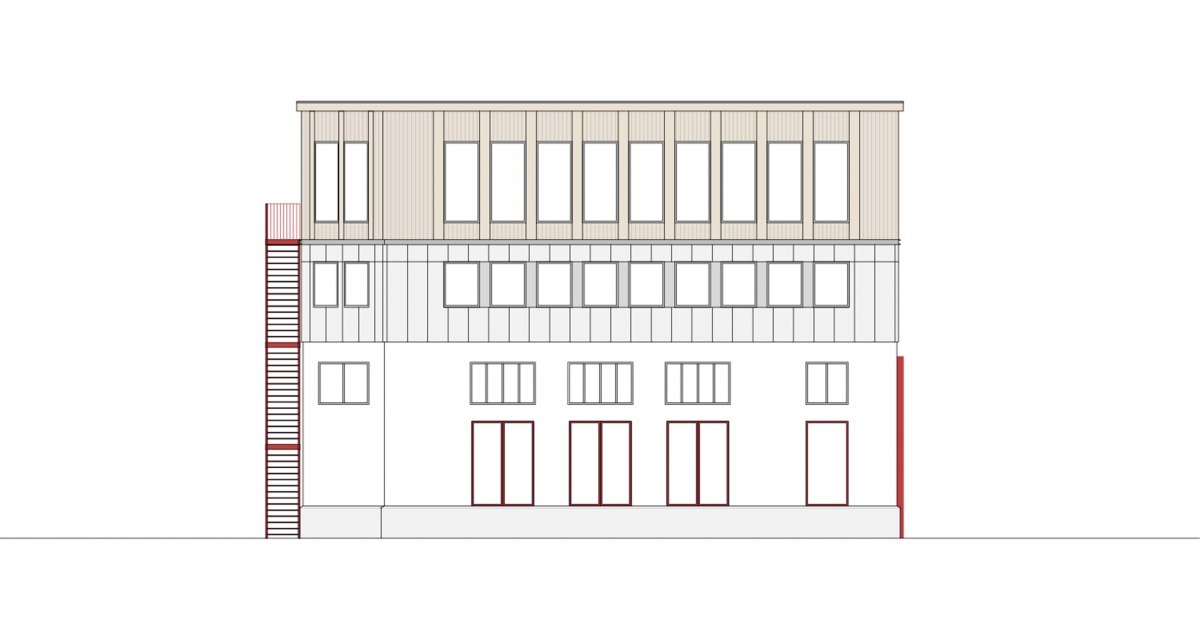
Addressing the climatic changes predicted by the RCP 8.5 scenario, Ørsta anticipates warmer temperatures and increased rainfall, emphasising the importance of resilient and adaptive architectural solutions. This scenario also suggests a significant rise in sea levels and more frequent storm tides.
The proposed redevelopment of Kaihuset aims to create a dual-purpose space, serving as a community hub and an innovation centre. The community hub is envisioned to revitalise the town centre by providing a venue for various social and cultural activities. The innovation centre intends to support local businesses and entrepreneurs, fostering a spirit of collaboration and growth.
The architectural transformation of Kaihuset respects its past while preparing it for future use. The ground floor, designed to be adaptable and resilient, can accommodate various community activities and is equipped to handle potential flooding. The upper floors, designated for the innovation centre, will offer a mix of collaborative and private workspaces. A new fourth floor, built with sustainable materials, will extend the building’s capacity and add a new aspect to its existing structure.
The facade renovation will maintain the building’s historical integrity while incorporating elements that reflect its new functions. The addition of new windows and an accessible entrance aims to enhance Kaihuset’s connection with its surroundings and the town centre.
In summary, the transformation of Kaihuset is an endeavour to address the evolving needs of Ørsta’s community. By integrating considerations of climate resilience, communal requirements, and historic preservation, the project aspires to position Kaihuset as a dynamic element in the town’s ongoing narrative. It represents an effort to blend the past’s legacy with future aspirations, aiming to create a space that fosters community interaction and innovation.
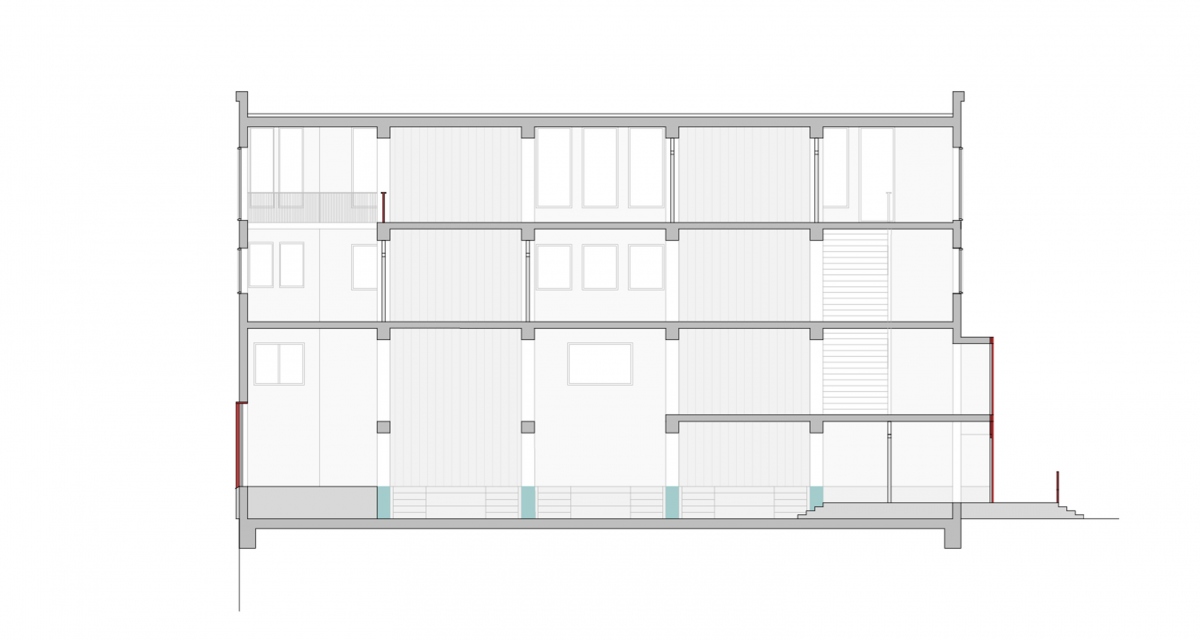
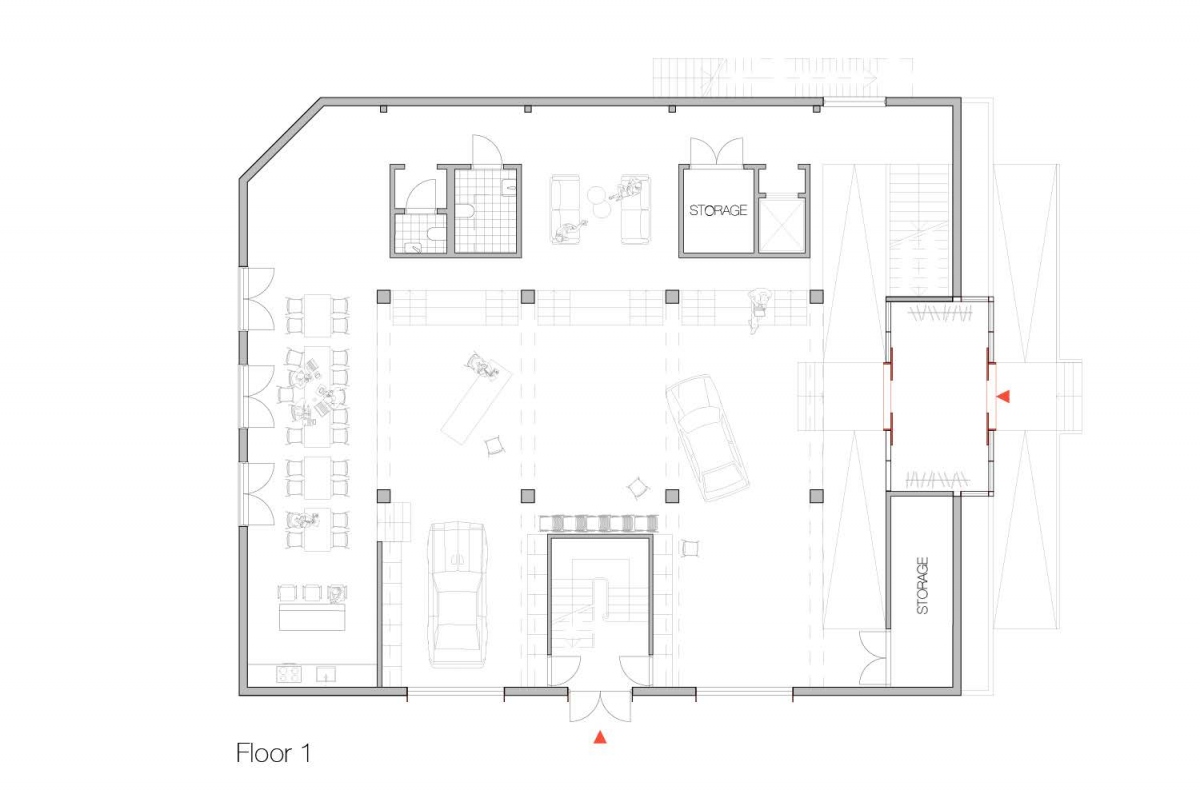

Knut Nikolai Sæter / knut@arkitekt-saeter.no / www.arkitekt-saeter.no

